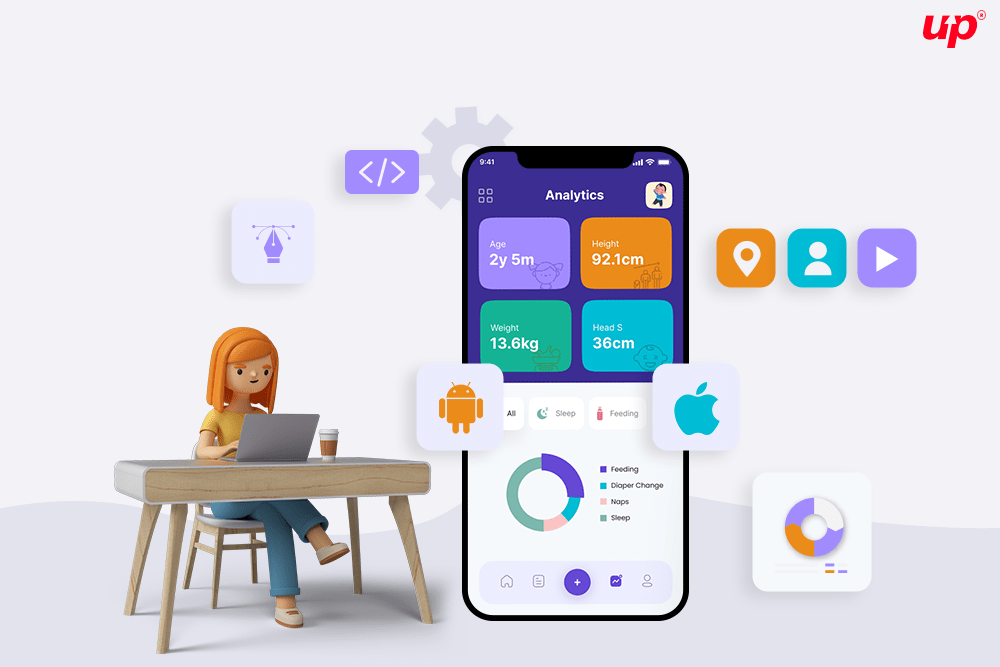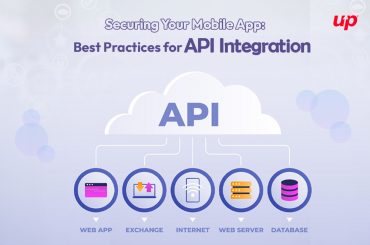With so many services and resources at our fingertips, mobile apps have become an essential part of our everyday life. There is an app for practically anything we need, from banking and shopping to social networking and entertainment. More and more individuals are using their smartphones and tablets to browse the internet and communicate with companies and brands.
You may take advantage of this sizable and expanding market by hiring a mobile app development company in UK, which will introduce your business to new clients and give them a fun and easy method to engage with it.
Mobile apps can help organizations in many ways, not just in terms of expanded consumer involvement and reach but also in terms of enhanced productivity and efficiency, customer loyalty, and the capacity to collect insightful data from user behaviour.
Check out our list of the top 8 mobile app development platforms if you’re thinking about creating a mobile application. By utilizing appropriate resources and ingenuity, you can materialize your app concept and capitalize on the enormous potential of the mobile industry. Let’s first go over the advantages of mobile app development platforms before moving on to our main goal.
What Are Mobile App Development Platforms?
Software applications that offer resources and tools for creating mobile applications for different operating systems, including Windows, iOS, and Android, are known as mobile app development platforms. Custom Mobile App Development Company assist developers in creating, testing, and deploying mobile apps more successfully and efficiently, these platforms often provide a variety of features and services.
Related:- Uses of Mixed Reality in Mobile App Development 2024
There Are Two Main Types of Platforms for Developing Mobile Apps:
Platforms for developing native apps: These development platforms are intended to create applications for a particular mobile operating system, like Android or iOS. mobile app developer for hire for native app development gives access to native APIs and tools for building user- and performance-optimized apps.
Cross-platform app development platforms: With them, developers may use a single codebase to create apps that function across a variety of mobile operating systems. For businesses looking to expand their user base without having to develop unique applications for every platform, this may be a more practical and economical solution.
Platforms for Developing Mobile Apps Have Benefits
Particular advantages of platforms for developing mobile apps are as follows:
Usability: Pre-built components and functionality, together with an intuitive interface, are common elements offered by mobile app development platforms, which can streamline the development process. This might be especially helpful for businesses that are just starting to develop mobile apps.
Cross-platform compatibility: Using a single codebase, developers can use some mobile app development platforms to create apps that function across a variety of mobile operating systems.
Integration with cloud-based services: A lot of platforms for developing mobile apps offer integration with cloud-based tools and services. As a result, building and maintaining servers and infrastructure won’t be as necessary for developers, streamlining the development process.
Tools for testing and debugging apps: Mobile app development company in UK frequently offer a variety of services and tools for this purpose, such as emulators and simulators as well as tools for monitoring and resolving problems. This can assist developers in making sure their apps are of the highest caliber and function properly across a range of platforms and operating systems.
The Top 8 Platforms for Developing Mobile Apps
Xamarin
Xamarin is a well-liked app development platform that uses C# and.NET to create Windows, iOS, and Android apps. It provides a variety of tools and services, such as a visual designer, debugging tools, and integration with cloud-based services like Azure, for developing, testing, and launching mobile apps.
Flutter
Google developed the open-source Flutter framework for developing mobile apps. It provides a variety of features and tools for creating aesthetically pleasing and responsive apps, and it enables developers to create apps for Android, iOS, and the web all from a single codebase.
Cordova
With the use of HTML, CSS, and JavaScript, developers may construct cross-platform mobile apps with the well-known open-source Cordova framework. To access native device capabilities and functions, such as the camera, GPS, and storage, it offers a collection of plugins and APIs.
Sencha
Sencha is a platform for mobile app development services that offer a range of services and tools for creating cross-platform applications with JavaScript and HTML5. It provides several capabilities, including support for different UI elements and layouts, for creating aesthetically pleasing and responsive apps.
Unity
Unity is a widely used platform for creating interactive content, games, and cross-platform mobile apps. In addition to integration with a variety of services and tools for developing an app’s backend, it offers a set of tools and services for developing, testing, and deploying apps.
Ionic
Ionic is an open-source mobile app development platform that lets mobile app developer for hire use HTML, CSS, and JavaScript to create cross-platform applications. Along with interaction with a variety of cloud-based services and tools for developing an app’s backend, it offers a set of tools and services for creating aesthetically pleasing and responsive apps.
Nativescript
One well-known open-source framework for creating mobile applications for both the iOS and Android platforms is called NativeScript. You can use a single codebase to create native apps for iOS and Android with NativeScript. Developers may create Typescript, Angular, or JavaScript mobile apps with NativeScript.
React Native
Meta designed the well-known mobile app development platform React Native. With JavaScript and the React library, developers can create native apps for iOS and Android. It also provides several tools and services for app development, testing, and deployment.
Custom Mobile App Development Company create apps with native components and APIs, one of React Native’s strongest characteristics is its ability to provide a seamless and intuitive user experience. Additionally, React Native offers several resources and tools for building an application’s backend.
Conclusion
In conclusion, it’s critical to take into account aspects like the kind of app you want to develop, the operating systems you want to support, and the resources and tools that are accessible when selecting a mobile app development service. Every platform mentioned above has advantages and disadvantages; the ideal option will rely on your unique requirements and objectives.
In the end, a mobile app’s quality and utility to consumers determine its level of success. Through the selection of an appropriate development platform and the utilization of accessible tools and resources, developers may produce applications that satisfy user requirements and enhance engagement and retention.












